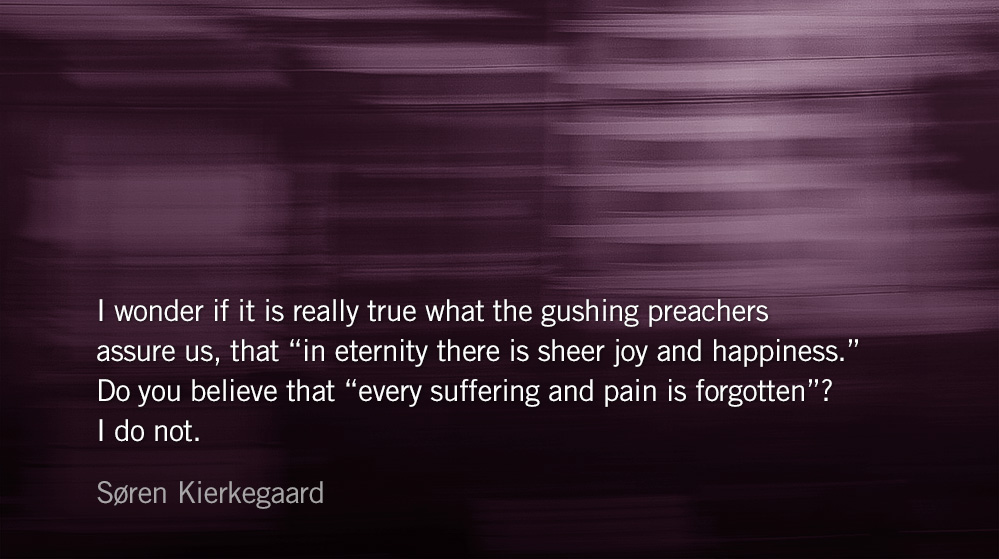By Søren Kierkegaard
After you have suffered a little while, the God of all grace, who has called you to his eternal glory in Christ, will himself restore, confirm, strengthen, and establish you. — 1 Peter 5.10
You still have perhaps forty years to live, perhaps only ten, perhaps only a day. You can fill up this time with becoming just like the others: nice, amiable people, above all with whatever counts in having advantages in life, with whatever gains you pleasure.
Let us assume that you succeed in making this kind of life for yourself, and then you die.
You desire, of course, to be saved. But have you ever pondered this–I wonder if it is really true what the gushing preachers assure us, that “in eternity there is sheer joy and happiness.” Do you believe that “every suffering and pain is forgotten”? I do not.
The New Testament makes the very specific exception of one suffering: having suffered for the truth. Or do you believe that Christ’s suffering, and for that matter, anyone else’s who suffered for the truth, is forgotten in eternity?
The intensity of suffering is greatest when you have the power to free yourself from it. I must use my energy to force myself out into the suffering and then use it to endure the suffering.
Voluntary suffering is suspect at three points. First, I must use my strength to compel myself to go forth into the suffering. Second, I must use my strength to bear it. And third, I must put up with the advice of relatives and sympathizers who insist that I go too far. Such is the way of Christian suffering.
Voluntary suffering provides the double collision which is the mark of everything essentially Christian: to become hated, cursed, detested, to have to suffer. No one ever thinks of persecuting someone because he is in poverty against his will, but no one is as hated as the one who voluntarily renounces that in which people naturally center their lives. Only one who is marked by the voluntary can be entrusted with Christ’s command.
Oh Lord, not only do you know our sorrow better than do we ourselves, but you feel it, too. You understand the burden, the heavy grief that we bear. You are our refuge and our strength, and there is none other.
*Abridged from Søren Kierkegaard’s writings, compiled in Provocations by Charles E. Moorein.
Isaiah 17-18 (Listen – 3:44)
1 Peter 5 (Listen – 2:11)






